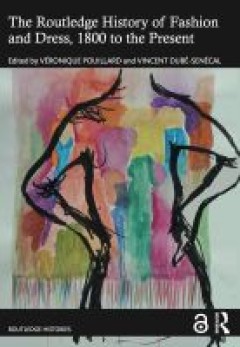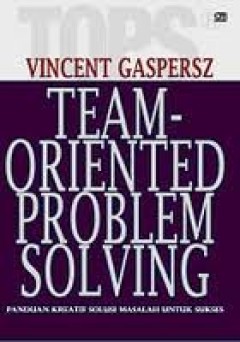Ditapis dengan

E-book The Routledge History of Fashion and Dress, 1800 to the Present
The time span covered by The Routledge History of Fashion and Dress starts in the nineteenth century, with the aftermath of the consumers’ revolution, and reaches all the way to the present. The fashion and garment industries have been international from the beginning and, as such, this volume looks at the history of fashion and dress through the lenses of both international and global histor…
- Edisi
- -
- ISBN/ISSN
- 9781000963427
- Deskripsi Fisik
- 576
- Judul Seri
- -
- No. Panggil
- 001.3
E-book Disturbing Times : Medieval Pasts, Reimagined Futures
These are disturbing times. Scholars in medieval and premod-ern studies are tired of explaining why, yet this labor continues to be performed by those who often have the least personal and professional security.1 A case in point here is Mary Rambaran-Olm, who consistently advocated, and with considerable risk for her own scholarly career and personal well-being, for the re-tire…
- Edisi
- -
- ISBN/ISSN
- 9781950192762
- Deskripsi Fisik
- 385 hlm
- Judul Seri
- -
- No. Panggil
- 935 KAR d
E-book Musical Gentrification : Popular Music, Distinction and Social Mobility
The aim of this book is to explore the role of music with regard to social dynamics and processes of cultural inclusion and exclusion through the concept of musical gentrification. Our investigation of these phenomena pays special attention to the expanding role that popular music plays, and has played, in the listening habits of people of all kinds as well as in a variety of edu…
- Edisi
- -
- ISBN/ISSN
- 9780429325076
- Deskripsi Fisik
- New York
- Judul Seri
- -
- No. Panggil
- 306.4 BAT m
E-book Migrants shaping Europe, past and present
This comparative volume advances an argument about the sustained contribu-tion of migrants to Europe’s literatures, social cultures, and arts.Firstly, those named most often by others as “migrants” do not represent a sudden, unprecedented crisis, as pundits and politicians continue to claim, with successive waves of migration. Instead, people arriving in the Spanish enclaves in Morocco, l…
- Edisi
- -
- ISBN/ISSN
- 9781526166166
- Deskripsi Fisik
- 307 hlm
- Judul Seri
- -
- No. Panggil
- 331.544 AME m
E-book Communicating Linguistics Language, Community and Public Engagement
In his 1980 book Language: The Loaded Weapon, Dwight Bolinger decries the number of ‘shamans,’ as he calls them, who comment without authority (and usually without recourse to evidence) on the use of language. The problem, he says, is that ‘they are almost the only people who make the news when language begins to cause trouble, and someone must answer the …
- Edisi
- -
- ISBN/ISSN
- 9781003096078
- Deskripsi Fisik
- 265 hlm
- Judul Seri
- -
- No. Panggil
- 410 PRI c
E-book Poems of 1890 : A Selection
In the same year he published his first Dutch poetry in the influential magazine De nieuwe gids (The New Guide). The journal, founded in 1885, was dominated at this period by the poet Willem Kloos (1859–1938), who used its pages to proclaim a radical aestheticism and advocate literature that was both non-sectarian and non-utilitarian. Poetry, Kloos famously asserted, was ‘the supremely indi…
- Edisi
- -
- ISBN/ISSN
- 978-1-910634-12-7
- Deskripsi Fisik
- 99 hlm
- Judul Seri
- -
- No. Panggil
- 821 GOR p
E-book Poems of Guido Gezelle : A Billingual Anthology
Guido Gezelle, born in Bruges in 1830, left a varied œuvre as a man of letters, journalist, translator and populariser. But it is mainly as a poet that he occupies an illustrious position in the history of Dutch literature. He is undoubtedly the most innovative and original Flemish poet between 1680 and 1880. With his exceptional lyrical poetry he was some twenty years ahead of the renewal mov…
- Edisi
- -
- ISBN/ISSN
- 978-1-910634-94-3
- Deskripsi Fisik
- 253 hlm
- Judul Seri
- -
- No. Panggil
- 821 VIN p

I like What i know : A Visual Autobiography
- Edisi
- -
- ISBN/ISSN
- -
- Deskripsi Fisik
- 313 hlm 16x24 cm
- Judul Seri
- -
- No. Panggil
- 920 PRI i
- Edisi
- -
- ISBN/ISSN
- -
- Deskripsi Fisik
- 313 hlm 16x24 cm
- Judul Seri
- -
- No. Panggil
- 920 PRI i

Tops team-oriented problem solving : Panduan kreatif solusi masalah untuk sukses
- Edisi
- cet. 1
- ISBN/ISSN
- 979-22-2559-5
- Deskripsi Fisik
- 148 hlm; 15cm x 23 cm
- Judul Seri
- -
- No. Panggil
- 158 GAS t
- Edisi
- cet. 1
- ISBN/ISSN
- 979-22-2559-5
- Deskripsi Fisik
- 148 hlm; 15cm x 23 cm
- Judul Seri
- -
- No. Panggil
- 158 GAS t

Kekuatan berpikir positif bagi muda-mudi
- Edisi
- cet. 1
- ISBN/ISSN
- -
- Deskripsi Fisik
- vii;199hlm;;14x21cm
- Judul Seri
- -
- No. Panggil
- 155.5 VIN k
- Edisi
- cet. 1
- ISBN/ISSN
- -
- Deskripsi Fisik
- vii;199hlm;;14x21cm
- Judul Seri
- -
- No. Panggil
- 155.5 VIN k
 Karya Umum
Karya Umum  Filsafat
Filsafat  Agama
Agama  Ilmu-ilmu Sosial
Ilmu-ilmu Sosial  Bahasa
Bahasa  Ilmu-ilmu Murni
Ilmu-ilmu Murni  Ilmu-ilmu Terapan
Ilmu-ilmu Terapan  Kesenian, Hiburan, dan Olahraga
Kesenian, Hiburan, dan Olahraga  Kesusastraan
Kesusastraan  Geografi dan Sejarah
Geografi dan Sejarah